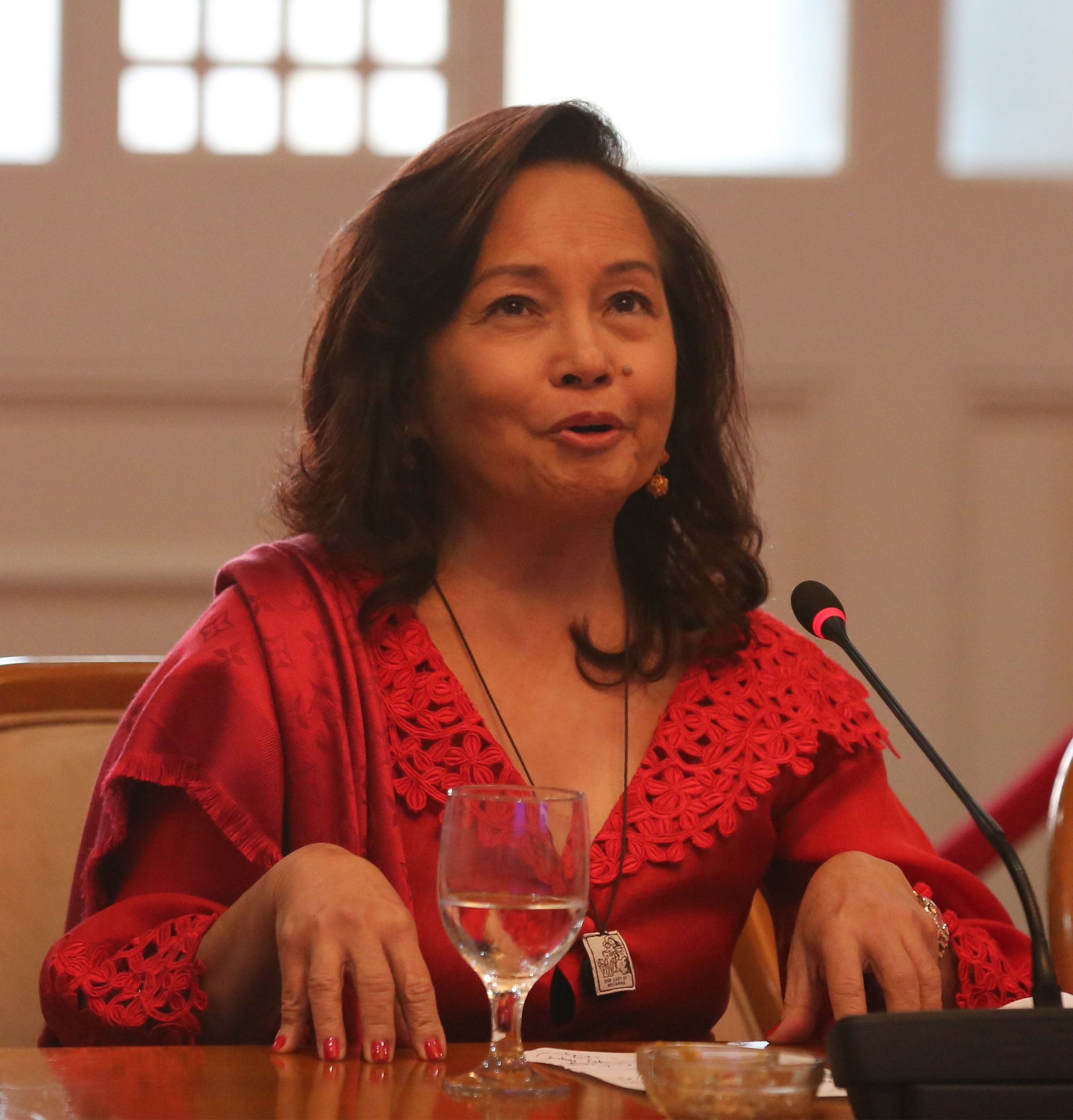
Speaker Gloria Macapagal Arroyo during meeting with NDRRMCofficials and local governments regarding the flooding in Central Luzon. PDI/JOAN BONDOC
MEXICO, Pampanga — Speaker Gloria Macapagal-Arroyo on Wednesday said the Senate and the House of Representatives must vote separately in a constituent assembly that would amend the Constitution for a shift to federalism.
The Senate, however, was wary of the proffered impasse breaker, with one senator rejecting it as a “mousetrap.”
“The way to move forward is to vote separately,” Arroyo, a former President of the Philippines, said, noting that the Senate and the House had reached a deadlock on the proposed amendment of the 1987 Constitution through a constituent assembly.
‘We have to move forward’
Her predecessor, Davao del Norte Rep. Pantaleon Alvarez, had insisted on joint voting and for the House to go it alone if the senators were unwilling to sit with the congressmen to amend the Constitution.
The senators had rejected joint voting because the 23 of them would be overwhelmed by the 292 congressmen.
“We have to be realistic. We have to move forward because that’s how it has been since I was President,” Arroyo told reporters before the launch of a greening program of Metro Pacific Tollways Corp., the operator of the North Luzon Expressway.
‘Gov’t initiative’
Arroyo’s administration had attempted to rework the Constitution for a shift to the parliamentary system and liberalize the economy.
All of the bids of her congressional allies to force the enterprise were crushed in widespread protests, some of which were led by the Catholic Church, and an attempt at a people’s initiative by a group of supporters was shot down by the Supreme Court, where one magistrate described it as a “government initiative.”
Arroyo, after wresting the speakership from Alvarez in a sordid leadership row last week, pledged to carry out President Rodrigo Duterte’s legislative agenda, which included a change to federalism.
‘As good as dead’
But the Senate decided last week not to give priority to federalism, although the senators agreed to hear proposals for the shift.
On Wednesday, Sen. Panfilo Lacson, speaking in a television interview, declared the proposed constituent assembly “as good as dead.”
“As far as the senators [are concerned], yes, [it’s] as good as dead, because we are not adopting any joint resolution that could pave the way for a Con-ass,” Lacson said, using the derisive shortcut for “constituent assembly.”
He said the senators were also not inclined to support other proposed ways of amending the Constitution, even a constitutional convention with elected members.
Mousetrap
Lacson was also suspicious about Arroyo’s decision to allow separate voting in a constituent assembly.
“As far as the Senate is concerned, [the answer is] still a resounding no. Why?” Lacson said in a text message to reporters.
“That’s her statement now, yes. Once we have tied ourselves into adopting a joint resolution for a joint session with the [House], there is no guarantee that conditions will not change by then,” he said.
“When that happens, there is no wiggling out of that situation. Like a poor mouse in a mousetrap, we are dead just the same,” he added.
Sen. Francis Pangilinan, president of the opposition Liberal Party, also refused to bite Arroyo’s bait.
“The [Supreme Court] already rendered the Senate inutile and inconsequential in the matter of its exclusive power to remove a Chief Justice through impeachment,” Pangilinan said, referring to the high court’s decision to grant a quo warranto petition brought by Solicitor General Jose Calida to remove Chief Justice Maria Lourdes Sereno from office.
“What will prevent it from doing it yet again in the constitutionally mandated process of amending the Charter?” Pangilinan said.
Helpful move
But Sen. Aquilino Pimentel III, president of the ruling Partido Demokratiko Pilipino-Lakas ng Bayan (PDP-Laban), saw Arroyo’s decision as helpful to the advancement of the federalism proposal.
“Yes, that helps because at least that should settle the issue on how the vote is taken and counted. Hence, we can now focus on the substance of federalism,” Pimentel told reporters.
Last week, Pimentel said only four senators favored the proposed shift to federalism.
He was one of the four. He did not name the others.